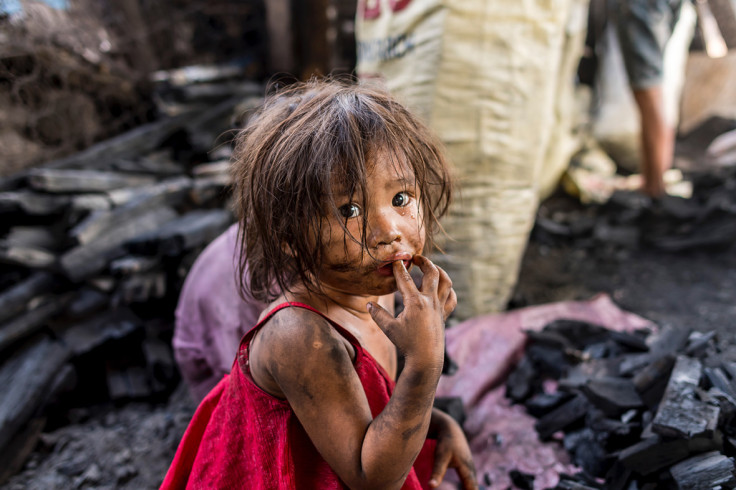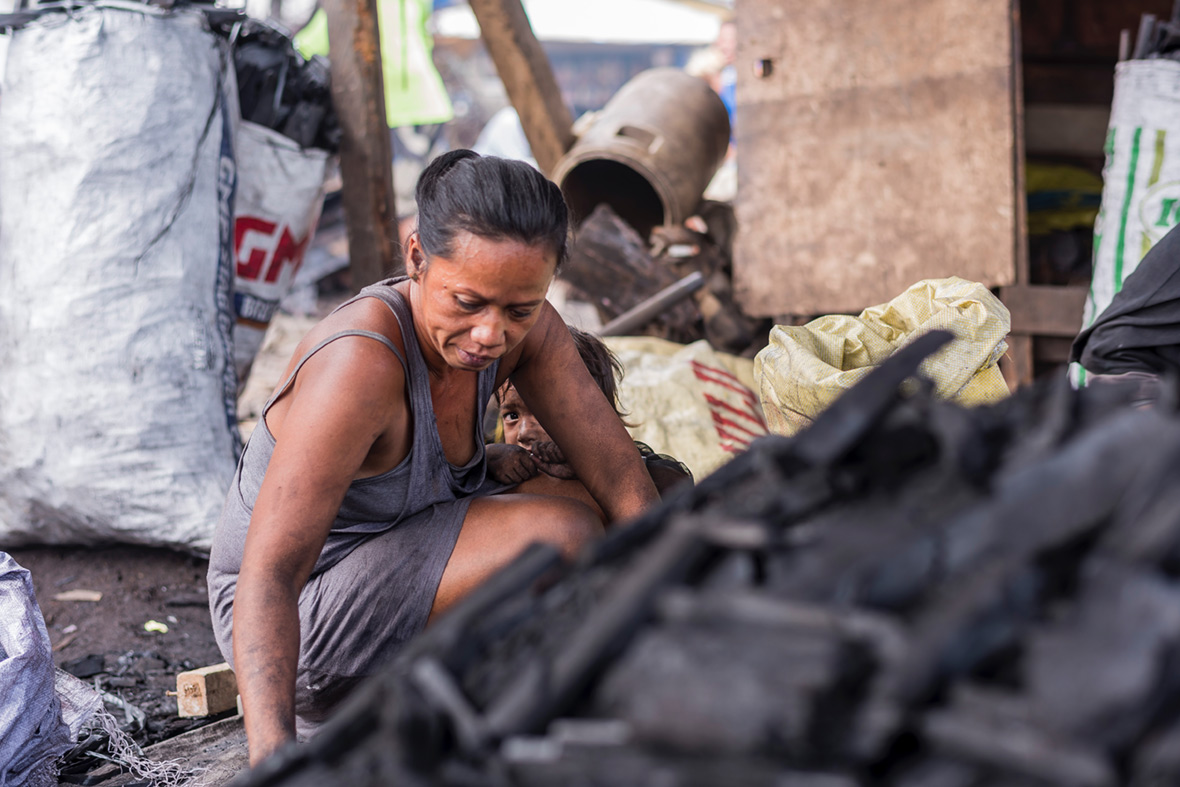Heartbreaking photos of Manila's slum children working at deadly charcoal kilns
Children as young as three spend their days sitting in soot and breathing in coal dust and toxic smoke to make charcoal out of wood scavenged from rubbish dumps.
In the poorest slum areas around Manila, children as young as three spend their days sitting in soot and breathing in coal dust and toxic smoke as they help their families eke out a living making charcoal out of wood scavenged from rubbish dumps and construction sites.
Renowned Australian photo journalist Ted McDonnell visited one family at the Barangay of Catmon dumpsite outside Malabon City on Christmas Day. He shares their heartbreaking story with IBTimes UK.

Joyce, a single mother in her 30s, has seven children aged from three to 10. They don't go to school – they all work together from early morning to dusk packing bags of charcoal to earn around 192 pesos (about £2.85) a day.
Joyce said this is the only way she can make money to feed herself and her children. "I didn't finish schooling and even my children do not study because we just can't afford it," Joyce told McDonnell, via an interpreter. "All my family members work as charcoal makers, from my youngest to my oldest – all my seven children.
"We earn very little, but it's my only source of income and at least we can eat for Noche Buena (Christmas)."



Her children's faces and hands are blackened with coal dust; their eyes red and sore, their noses constantly dripping, and their lungs filled with the dust from the charcoal and pungent smoke that fills the air of the charcoal harvesting area. They will be lucky to reach their teenage years without suffering major health problems or even death from pulmonary disorders.
They breathe in harmful emissions such as as carbon monoxide and nitrous oxide, plus a cocktail of unknown chemicals that are given off when burning treated wood. Some of the health risks facing the charcoal producing families in Manila's slums include acute infections of the lower respiratory tract such as pneumonia, chronic bronchitis and emphysema, as well as lung cancers.




The charcoal manufacturing process takes around five days. Scavenged bits of wood are piled up into a pyramid shape and surrounded with tin. The whole structure is then covered with soil and set alight. The kiln smoulders for a few days, while charcoal producers stoke the fires, breathing the acrid smoke.



Children help to pack large sacks of charcoal that sell for 400 pesos (around £6) each, or smaller bags at just 8 pesos (12p) each. Young children deliver the bags of charcoal to local slum families for cooking purposes.




Although charcoal harvesting is banned in most districts, it goes on secretly in many of Manila's outer suburban slums. The news that the city government of Malabon plans to end charcoal making in the district by 2019 worries Joyce. "I know it's a dangerous occupation but we have no other skills," she told McDonnell. "It's the only thing my family knows. We are charcoal makers."
You can help by making a donation to one of the charities that work with children in Manila's slums: Kilos Bayanihan or Project Pearls.
Ted McDonnell's book "A Life in Happyland", documenting the lives of children in Manila's slums, is out now. An Ebook version of his book is available at the Apple store. All proceeds go to the NGOs working to help families in slum areas. He is represented by SIPA Press in France. You can see more of his work at tedmcdonnell.com.






















